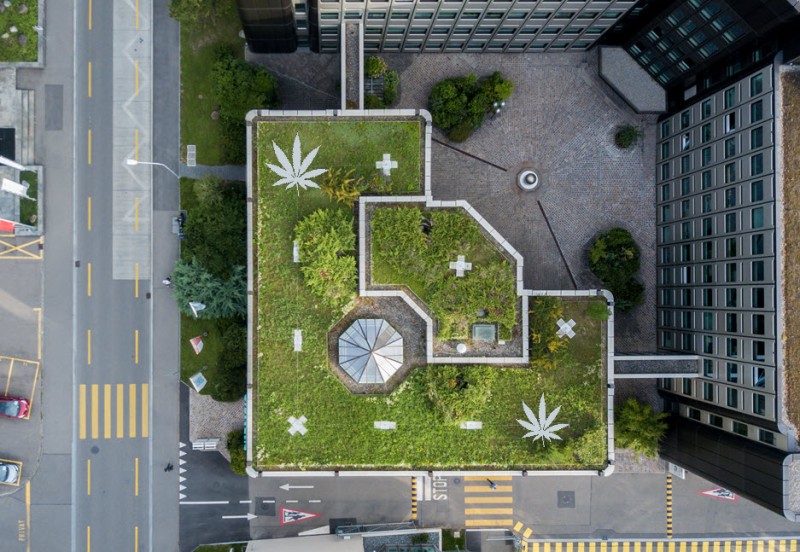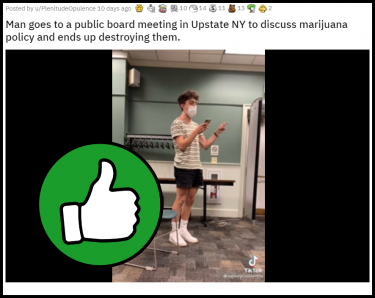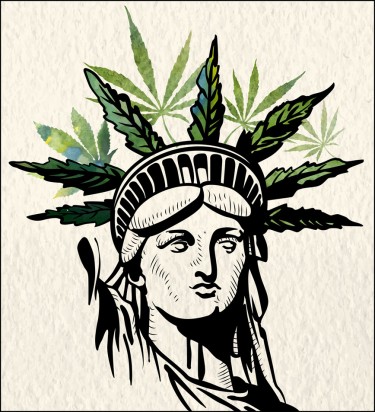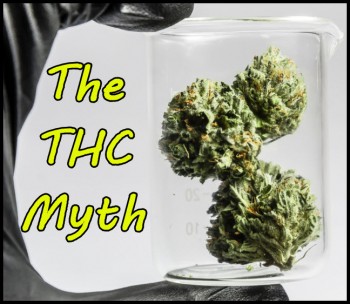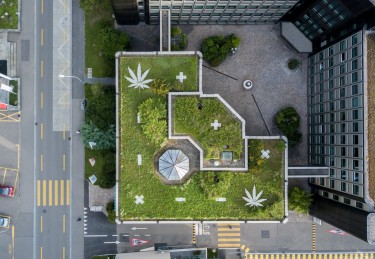
Mayor Eric Adams of New York City has proposed a plan that would make public housing in the city more environmentally friendly. He proposed growing marijuana on top of New York City Housing Authority properties. Mayor Adams would require federal authorization for the NYCHA plan to be successful.
On Tuesday, he stated that he believes there is a massive opportunity for marijuana to be grown on NYCHA rooftops with an employment aspect and utilizing the medical marijuana aspect, but that there are a lot of layers to getting it done. He added that they are going to have a sit down with the federal government agency to find out if there is a possibility to obtain a waiver and see how they can get it done
According to Adams, utilizing these rooftops could create prospects for employment as well as better utilization of the city's land. According to a statement from a spokesperson for Housing and Urban Development, which is the federal agency in charge of public housing, the mayor is facing some real obstacles in getting it done.
Mayor Adams, as of the 11th of April, still had not reached out to Housing and Urban Development about his proposal.
LEGAL RESTRICTIONS FACING THE PROPOSAL
When asked about the mayor's rooftop plan, the spokesperson for HUD stated that the current legal requirements prevent HUD and its public housing agency partners from having the option to permit public housing residents to use cannabis as the plant is still classified by federal law as a Schedule 1 drug. He added that for that to be updated, it would take Congress to change the law. Mayor Adams has said that the earnings and education under the plan can go right into employing people in the area. A spokesperson for the Mayor, Charles Kretchmer Lutvak, admitted in a statement that federal law was an obstacle to achieving Adams's rooftop cultivation plan. It seems that Mayor Adams, despite still standing by the idea, recognizes that there are a lot of stages involved in getting an exemption from the federal cannabis laws.
In a statement to Gothamist (a website about New York City news, arts and events, and food, brought to you by New York Public Radio), He said the same neighborhoods that have been targeted for decades are currently being harmed by federal laws that are still in effect. He added that a bill was passed in the House in this regard earlier this month and that they needed the people who were hindering progress at the federal level to follow in the footsteps of New York.
The MORE Act, which would see cannabis become legal federally, a bill that would make the drug simpler to handle on federal and state levels, was passed by the House of Representatives on April 1. The approval of the bill could lead to cannabis becoming easier to investigate and its exemption from the country's list of controlled substances. To make this happen, the bill would have to be authorized by the Senate, a move that remains unlikely as the matter has not been taken up by the Senate.
Democratic leadership in the Senate has pointed out that a separate bill, the Cannabis Administration and Opportunity Act, will be introduced in August.
THE HUD's POSITION ON CANNABIS
The Department of Housing and Urban Development (HUD) in the U.S. also stands out as a particularly anti-cannabis organization. For example, the department stated last year that it is obligated to continue refusing federally subsidized housing to people who use marijuana, even if they are acting in accordance with state law.
Rep. Eleanor Holmes Norton (D-DC) wrote to HUD Secretary Marcia Fudge last year, urging the department to use its executive discretion and refrain from penalizing people over the use of marijuana in states where it is legal. However, HUD's response was unequivocal: it said that, in keeping with federal law, the department forbids the admission of people who use cannabis into HUD-assisted housing, not excluding people who use medical cannabis.
In 2018, a former Trump-appointed HUD official in charge of the department's regional office for New York and New Jersey made it known that she was attempting to reconcile conflicting federal and state cannabis laws as they relate to residency in federally subsidized housing, but it did not lead to anything.
The residency policy for housing as it concerns the use of cannabis is still an ongoing problem, but the mayor's suggestion of growing marijuana on the NYCHA rooftops gives rise to its own set of special legal questions. The New York City Housing Authority was also contacted by the Marijuana Moment media outlet, but a spokesman directed the request for comment to the mayor's office.
Although the Department of Housing and Urban Development might not be willing to apply discretion when it comes to federal cannabis prohibition, it ought to be noted that the Justice Department has so far refused to take legal action against New York City after it approved the launch of the first safe consumption sites in the nation, where people can take currently illegal drugs in a medically supervised environment and obtain treatment resources.
BOTTOM LINE
As New York prepares to open its adult-use marijuana market, the Office of Cannabis Regulation (OCM) announced a significant expansion of the existing medical cannabis program. Now doctors will be able to freely give medical marijuana recommendations to individuals for any condition they feel could be treated properly using cannabis, instead of depending on a list of specifically qualified maladies.
Although cannabis has been made legal in New York and several other states in the United States, it has yet to be made legal federally, i.e., across the nation. The House voted to decriminalize cannabis not long ago, but the general expectation is for the bill to fail in the Senate. Just a while back, hundreds of licenses for farmers to start producing marijuana were authorized in New York. Recreational marijuana sales are likely to start by the end of 2022.
NYC WEED, READ MORE...
NY CITY ACTIVIST IN SHORT SHORTS DISSES CANNABIS BOMBS!
